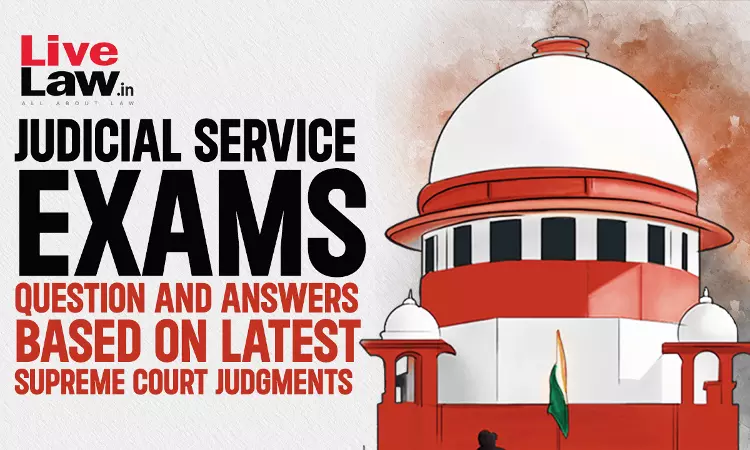Important MCQs Based On Latest Supreme Court Judgments On Law Examinations
Yash Mittal
3 Nov 2024 10:30 AM IST

Next Story
3 Nov 2024 10:30 AM IST
Q 1. The trial court convicted the accused in a murder case based on the deceased's mother's testimony deposing that her son (deceased) had made an oral dying declaration pointing out the names of the accused. However, the conviction was set aside by the High Court after noting material discrepancies in the deceased mother's testimony because in her Section 161 CrPC statements she didn't make...
